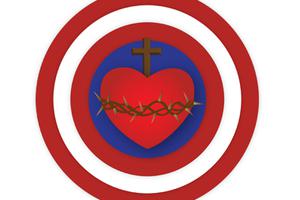Major Saints, Major Weaknesses
User's Guide to Sunday, July 20

Sunday, July 20, is the 16th Sunday in Ordinary Time.
Mass Readings
Wisdom 12:13, 16-19; Psalm 86:5-6, 9-10, 15-16; Romans 8:26-27; Matthew 13:24-43 or 13:24-30
Our Take
The Sunday readings share important ways God favors the weak — and then the Church celebrates the lives of saints that teach us the same lessons.
1. Mary Magdalene, July 22: In the Sunday Gospel, Jesus tells the story about the enemy who sows weeds in the farmer’s wheat field while he is sleeping. When the farmer’s servants want to pull up the weeds, the farmer stops them — he doesn’t want to pull wheat up by mistake.
Mary Magdalene, from whom “seven demons were cast out,” knows what he means. She is often used to represent the repentant sinner: a woman who left a sinful life to cling to God.
We who often behave like weeds can learn from her life that God will patiently allow us to become the wheat he intended us to be. As the first reading puts it: “You gave your children good ground for hope, that you would permit repentance for their sins.”
With Mary Magdalene, we should pray today’s Psalm with gusto, saying, “Lord, you are good and forgiving.”
2. St. James, July 25: St. James the Greater was one of the three apostles chosen for special opportunities: He saw Jesus raise Jairus’ daughter and witnessed the Transfiguration on Mount Tabor, each time with John and Peter.
But he was also weak. He asked Jesus to destroy a village, he sought a special place of honor at Jesus’ side, he fell asleep when asked to pray during the Agony in the Garden, and, when Jesus was crucified, James fled.
Then came the Holy Spirit. After Pentecost, St. James became a courageous apostle — in fact, he was the first apostle to become a martyr.
We should be inspired by the Spirit in our own lives, too. “The Spirit comes to the aid of our weakness,” says St. Paul in today’s second reading, “for we do not know how to pray as we ought, but the Spirit himself intercedes with inexpressible groanings.”
The Catechism of the Catholic Church explains: “We must pray, then, with this Spirit of freedom, to be able to truly know what he wants” (2736). When we pray superficially or sporadically, we might only scratch the surface of faith and might find ourselves misunderstanding God’s true intentions for our lives as badly as James did. When we invite the Holy Spirit to lead us, and give him time to do so, a very different future will emerge.
3. Sts. Joachim and Anne (July 26): Finally, we have Joachim and Anne, the parents of the Blessed Virgin Mary. Their great sorrow was infertility. The story goes that they patiently awaited a child into old age before they welcomed Mary. Then, they were willing to sacrifice their hope of grandchildren by consenting to her life of celibacy.
But in the end, not only did they become grandparents — they became the proudest grandparents in human history, with Jesus Christ himself as their grandson.
“The kingdom of heaven is like a mustard seed,” says the long form of today’s Gospel. “It is the smallest of all the seeds, yet, when full grown, it is the largest of plants.”
An act of faith, hope and love in our ordinary lives, like Joachim and Anne’s, sowed in the Spirit, will also have enormous consequences in the world.
Tom and April Hoopes write
from Atchison, Kansas,
where Tom is writer in residence
at Benedictine College.
- Keywords:
- July 13-26, 2014

















